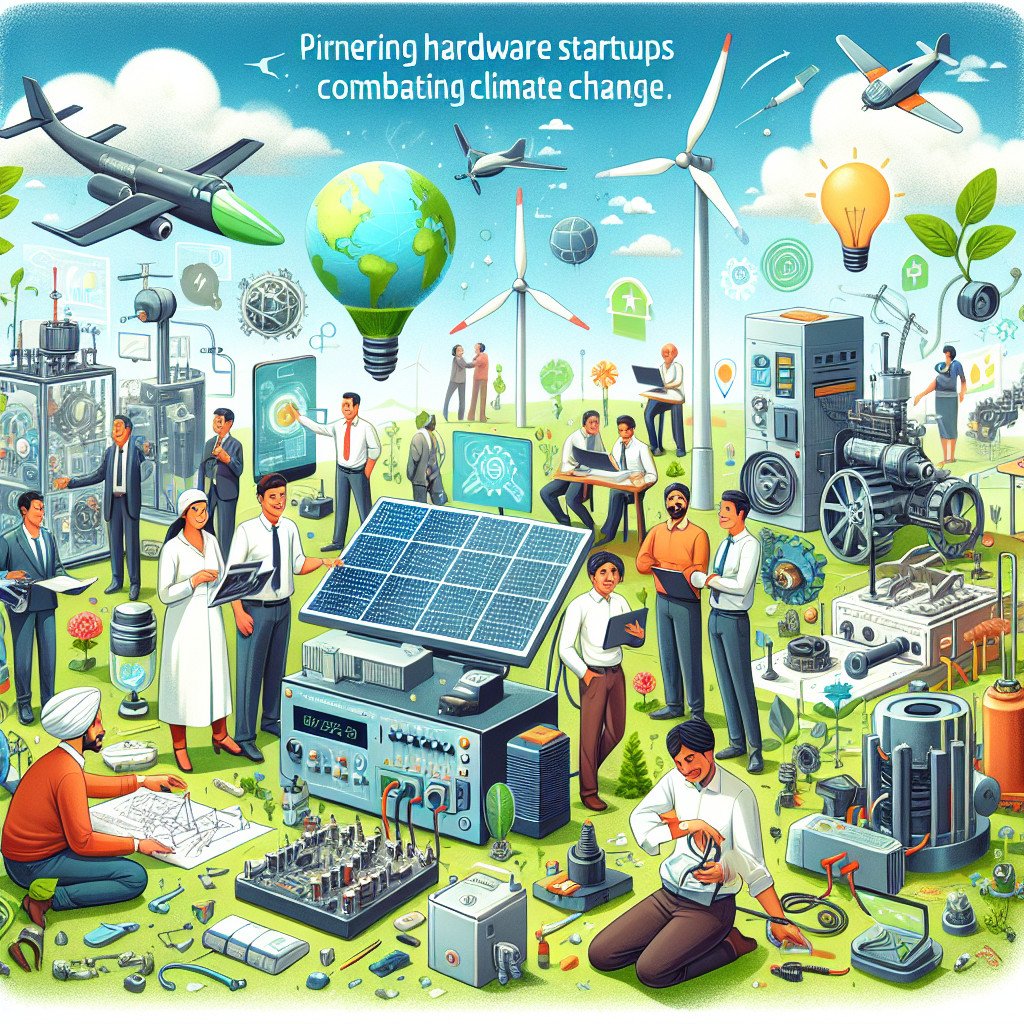Hardware Startups: The Key to Tackling Climate Change?
What will it take for a startup to significantly impact climate change? The most promising candidates appear to be hardware startups, which have been nurturing their technologies over several years. A focus on energy and raw material sectors seems to amplify their chances of success.
A recent report from Congruent Ventures and Silicon Valley Bank surveyed over 50 experts spanning academia, finance, and the private sector, to curate a list of 50 noteworthy North American companies. These companies span four main categories: agriculture and food, energy, buildings and mobility, and manufacturing and materials.
Among these, the majority belong to the manufacturing and materials sector (18), closely followed by energy startups (13). Interestingly, agriculture and food, pivotal sectors contributing to around a third of carbon emissions, are underrepresented, indicating a significant opportunity for emerging founders and investors. Nearly all selected startups emphasize hardware, diverging from the usual preference of generalist venture capitalists for software solutions.
It’s perhaps unsurprising that the frontline climate tech startups are primarily hardware-focused. Climate change presents real-world challenges; therefore, software alone cannot alter physical interactions with our environment, especially if the hardware still leans on fossil fuels.
The report indicates the average startup is approximately 7 years old and has successfully raised $374 million. However, this figure includes some exceptionally well-capitalized firms like Commonwealth Fusion Systems, Impossible Foods, Redwood Materials, Sila, and TerraPower, each exceeding $1 billion in funding. The median startup, on the other hand, is about six years old with a more modest total of $114 million in funding.
This disparity between average and median funding illustrates the divide in the journey through what is commonly known as the “commercialization valley of death.” Early-stage climate tech firms may effectively demonstrate their technology, yet the transition to commercialization often entails costs that deter many potential investors. According to the Congruent/SVB report, 28% of companies have secured less than $50 million, while an equal percentage have surpassed $500 million. In essence, successful navigation across this valley tends to attract generous investment.
The longevity of these firms is quite revealing as well: the typical company featured in this report has been operational for nearly a decade. Early climate tech startups face the arduous task of validating their underlying science, a process that inherently requires time. Following this, the intricate nature of building and refining hardware often extends timelines, leading to longer maturation periods compared to traditional software startups.
For investors outside the climate sector, committing substantial resources to high-risk hardware startups can pose substantial challenges. However, the potential returns are noteworthy: a McKinsey partner highlighted that the climate tech market is already valued at $1 trillion and is projected to double every decade. As climate change remains a pressing concern, ventures equipped to effectively lower emissions could capture a significant share of this burgeoning market, promising lucrative returns for their backers.

